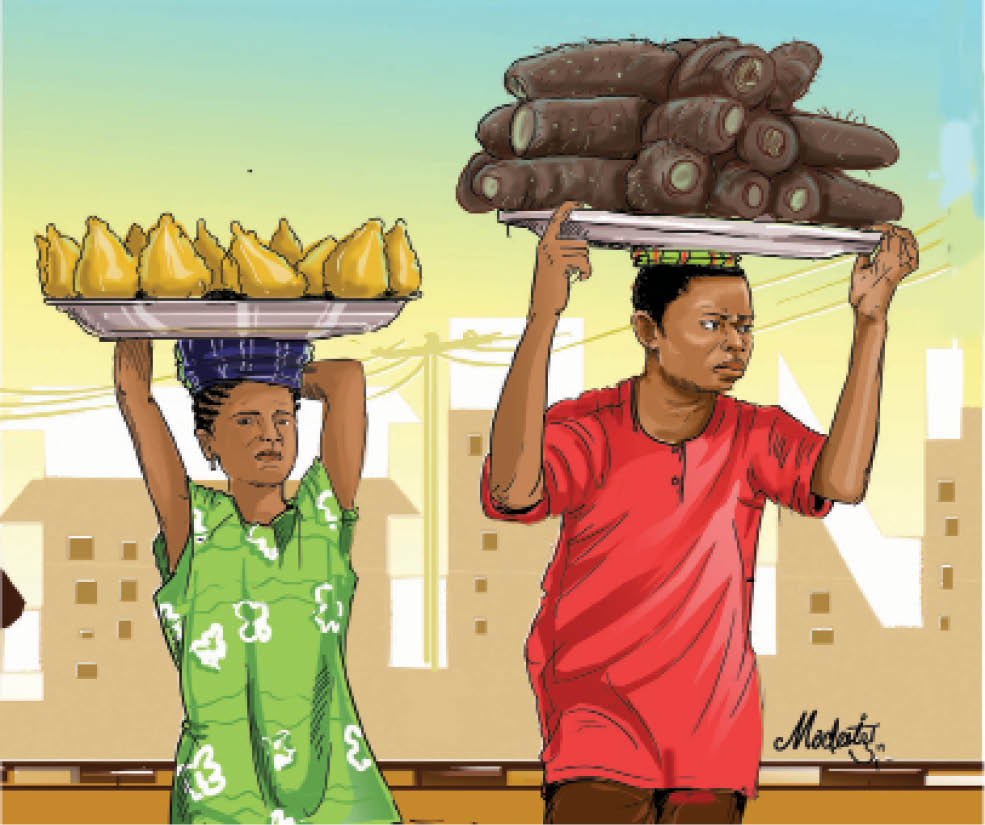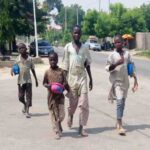Children are an integral part of any given society. They are the pedestals upon which the future of the society rests, for they are the leaders of tomorrow. Any society that toys with the future of its children does so at its own great peril.
But very few treat the issue of children with the seriousness it deserves. Today, in the name of making them contribute to the sustenance of their families, children are being pushed into exploitative form of labour, depriving them of the necessary education that will equip them for the future, all in violation of known national and international laws, as well as conventions and treaties.
Many children are being forced to contribute to the financial needs of their parents, guardians, older siblings or even criminal groups at the detriment of their health and mental growth and wellbeing.
During the commemoration of the 2023 World Day Against Child Labour (WDACL),in a statement by the Director, Press and Public Relations at the Federal Ministry of Labour and Employment, Olajide Oshundun, estimated that “Over 43 per cent of Nigerian children aged between five and 11 years are involved in economic activities, including being engaged in the worst forms of Child Labour.”
Quoting the 2016-2017 MICS Survey, the statement added that “39 per cent of children involved in child labour were working under hazardous conditions including quarrying granite, artisanal mining, commercial sexual exploitation, armed conflict, and sometimes are victims of human trafficking.”
For the Permanent Secretary in the Federal Ministry of Labour and Employment, Kachollom Deju, the 2023 WDACL called for reinvigorated international action to achieve social justice, with the elimination of Child Labour as one of its key elements.
“Child Labour is a grave concern that affects millions of children worldwide, denying them of their fundamental rights to education, health, mental and moral development and a childhood free from all forms of exploitation.
“The WDACL serves as a reminder that the fight against child labour requires sustained efforts and collective action the whole society,” he said.
The commitment of the federal government of Nigeria, in contributing to the global fight against child labour and its worst forms, is evidenced in the following interventions, programmes, activities and partnerships, the adoption and ratification of ILO Conventions No.138 and No.182, enactment of the Child Rights Act to domesticate the UN Convention on the Rights of the Child.
Though the 36 states of the federation and the Federal Capital Territory (FCT) have domesticated the Child Rights Act, there are still some challenges in its implementation, which include: poverty, cultural/religious factors, poor educational system, inadequate social protection systems and wrong perception/ ignorance of the negative effects of Child Labour.
Children need all the support necessary for their growth; they need to be in school in their formative years before their natural transformation to adulthood, which is being taken away through child labour and other forms of exploitation.
Even the national policy on education states that “Basic education shall be of 9-years duration comprising 6 years of primary education and 3 years of junior secondary education, it shall be free and compulsory.”
Sadly, a huge part of our population that should be in school is out of it, and are not receiving any form of education.
Yes, we need to empower our children: but that has to be through education, not exploitation, which child labour is mostly about. No one should be allowed to exploit children for selfish end. Children deserve a future in which they can thrive, not just survive at the margins.
At this juncture, we call on all relevant stakeholders to stand up and fight this menace that is threatening the survival of the future of the country. Government agencies such as the National Orientation Agency (NOA) and National Agency for the Prohibition of Trafficking in Persons-(NAPTIP),should do more to sensitise parents on the dangers and illegality of child labour. Child-focused Non-Governmental Organisations (NGOs) should also up their game to protect the interest of our young ones, so that when the society falters, wittingly or unwittingly, it would be reminded of the social and legal consequences.
Indeed, as societies continue to experience disruptions occasioned by technology and environmental challenges, governments at all levels in Nigeria must work with opinion leaders and other relevant stakeholders to ensure that children are equipped with the right education they need to live and work comfortably. We cannot, as a country, afford to keep children out of school and all hands must be on deck to address it.

 Join Daily Trust WhatsApp Community For Quick Access To News and Happenings Around You.
Join Daily Trust WhatsApp Community For Quick Access To News and Happenings Around You.


